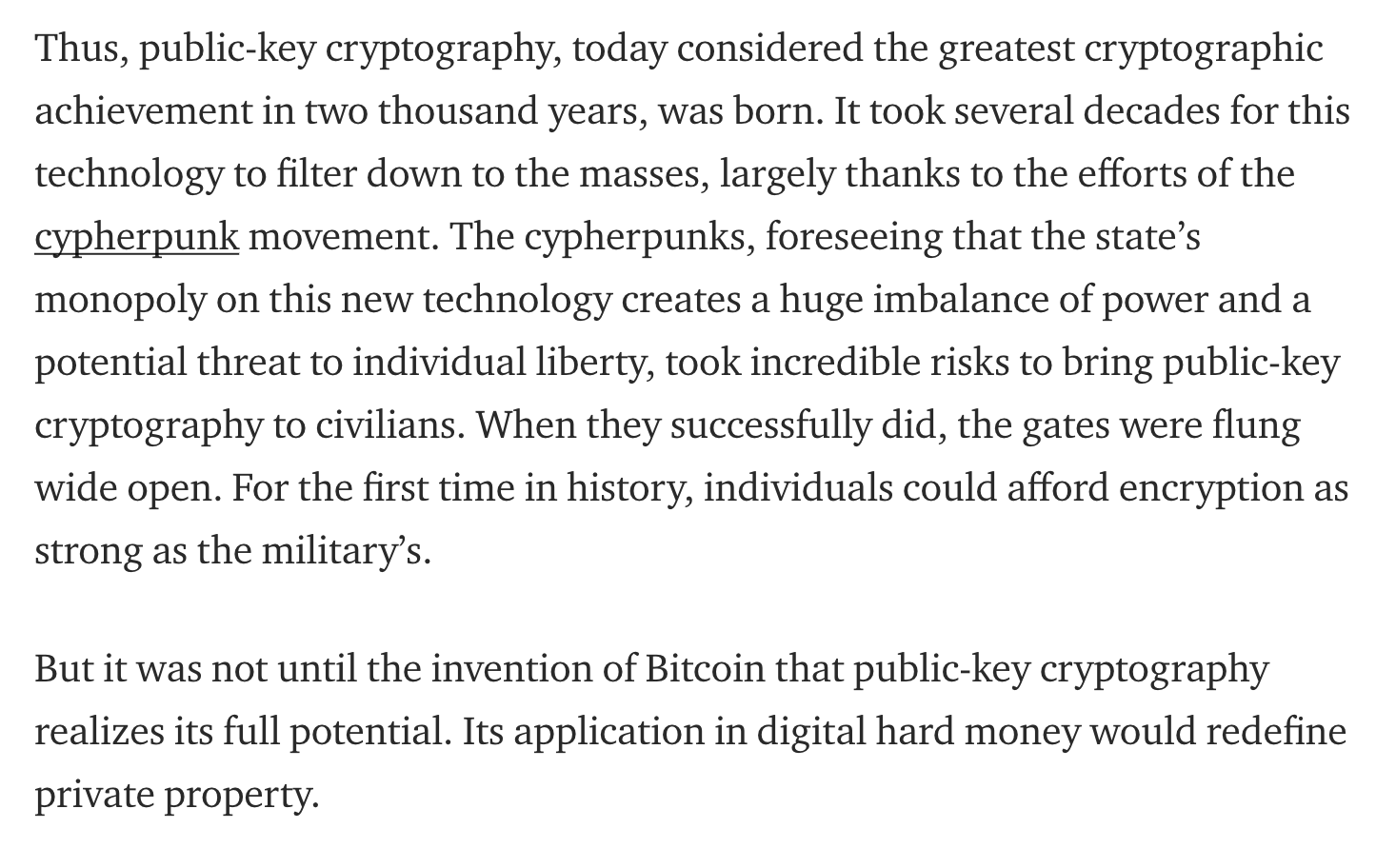
We are going back to the basics today.
It's a beautiful Tuesday morning here in Brooklyn and it seems like a perfect morning to get back to basics. Lucky for us, our boy Hugo Nguyen dropped an incredibly insightful and lucid piece on the evolution of property rights from the time of Plato to today and how public-key cryptography is completely changing the dynamic of property, how it relates to individuals + governments and questioning the need for politicians to participate in private property protection going forward. I highly recommend you take eleven minutes to read this piece because I truly believe most people do not fully understand the technology they have at their hands. Public-key cryptography has been utilized by the masses for decades via this thing called Internet commerce, which I'm sure a lot of you freaks took much pleasure in using yesterday.


However, I would argue, the fact that most people in the world use this technology unknowingly means that there exists a sort of disconnect between the power of the technology and the understanding of this power by the masses. To most people, the Internet works like magic. A good portion of people using the Internet today were born and grew up in a time before the Internet and did not have the need to understand how these networks operated because they did not have as much of an effect on their every day lives. As time goes on and as more and more people are born into a world hyperconnected via the Internet and as more of the economy becomes intertwined with software, citizens of the future are going to have a much better understanding of the tech that runs their world. This means they will have a much better understanding of the options that are available to them when it comes to protecting their digital property.
Bitcoin is an incredible tool that has made more and more people aware of the powerful tech they have available to them. I personally had no idea how powerful public-key cryptography was until I downloaded my first Electrum wallet, created a seed phrase, sent BTC to that wallet, traveled to a foreign land with that 12-word phrase, became strapped for cash, downloaded another Electrum wallet on my dad's computer, used the seed to access my funds, and exchanged BTC for cash. The rush of adrenaline and sense of freedom I experienced after hitting "Enter" upon typing in the phrase and seeing my BTC there in the newly created wallet was unlike anything I had experienced up to that point. Extremely cheesy, I know. But, it was the first time I truly realized the power of this technology.
Those precious 12 words ordered in a certain way were MINE and no one but me knew them. Those words gave me the ability to access money in a time of need and I could have accessed it anywhere in the world where I could download a wallet. This is a powerful realization and I believe more and more people will have similar experiences as Bitcoin continues to spread. Bitcoin may be the tool that does the best job of helping people understand the power of public-key cryptography because, when used correctly, it FORCES individuals to learn about it. And, again, as more people a born into a world in which the Internet has proliferated, the more educated the masses will be to the options laid before them. Bitcoin is but one application that utilizes this power, but it happens to be attempting to fulfill one of the most important apps in the world, money.
Grow your know, freaks. Peep Hugo's article and, if you have an hour to kill after it, peep Bastiat's "The Law". I think it's a good pairing with this piece in particular.
Final thought...
One time, when I was in 6th grade, I was riding the terrible Pirate Ship ride that sways back and forth high in the air next to a girl I had a crush on 15 minutes after crushing 5 slices of pizza. Wound up puking all over her. It was a horrible experience. Still haunts me. What a stupid ride.